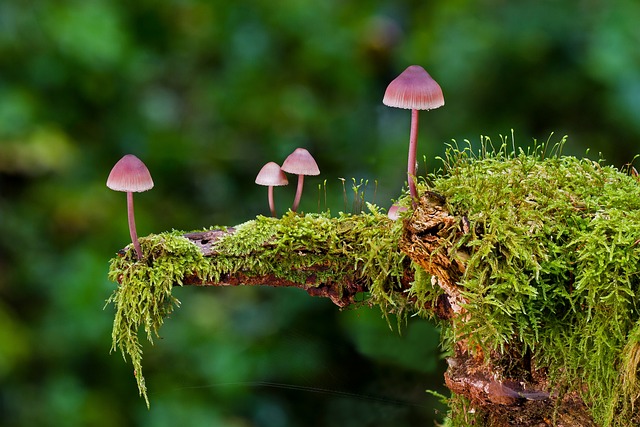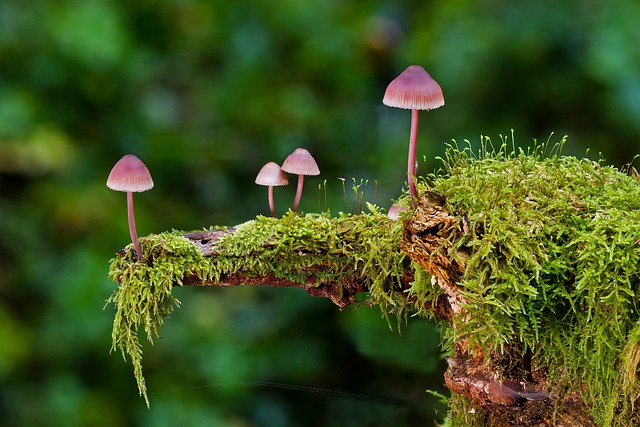Plants that don’t like mushroom compost are a special group of plants that are sensitive to the high levels of nitrogen and other nutrients found in mushroom compost. These plants are typically more delicate and require special care when it comes to fertilizing and soil amendments. While mushroom compost can be beneficial to many plants, it can be detrimental to some. Knowing which plants don’t like mushroom compost can help gardeners avoid potential problems and ensure their plants are healthy and thriving.
Plants that don’t like mushroom compost
– Azaleas
– Rhododendrons
– Blueberries
– Camellias
– Cranberries
– Potatoes
– Strawberries
– Orchids
– Ferns
– Succulents
What Plants Should Not Be Planted in Mushroom Compost?
Mushroom compost is a type of organic soil amendment that is made from the by-products of mushroom farming. It is a rich source of nutrients and can be used to improve the quality of soil in gardens and flower beds. However, it is important to note that not all plants are suitable for growing in mushroom compost.
Certain plants, such as those that require acidic soil, should not be planted in mushroom compost. These include azaleas, rhododendrons, blueberries, and other acid-loving plants. Additionally, plants that require well-draining soil, such as cacti and succulents, should not be planted in mushroom compost as it can retain too much moisture and cause the roots to rot.
It is also important to note that mushroom compost can contain high levels of salts, which can be toxic to some plants. Therefore, it is best to avoid planting salt-sensitive plants, such as tomatoes, peppers, and eggplants, in mushroom compost.
Finally, mushroom compost can contain fungi and other microorganisms that can be harmful to some plants. Therefore, it is best to avoid planting plants that are prone to fungal diseases, such as roses and other ornamentals, in mushroom compost.
In conclusion, while mushroom compost can be a great soil amendment for many plants, it is important to be aware of which plants should not be planted in it. Plants that require acidic soil, those that require well-draining soil, salt-sensitive plants, and plants prone to fungal diseases should all be avoided when planting in mushroom compost.
How to Avoid Plant Damage from Mushroom Compost?

Mushroom compost is a popular soil amendment for gardeners, as it is rich in nutrients and can help improve soil structure. However, if not used correctly, mushroom compost can cause damage to plants. To avoid this, it is important to understand how to use mushroom compost correctly.
First, it is important to note that mushroom compost should not be used as a top dressing for plants. Instead, it should be mixed into the soil at a depth of at least six inches. This will help to ensure that the compost is evenly distributed throughout the soil and that the nutrients are properly absorbed by the plants.
Second, it is important to use mushroom compost in moderation. Too much compost can cause an imbalance of nutrients in the soil, leading to plant damage. It is best to use no more than one part compost to four parts soil.
Third, it is important to make sure that the compost is fully composted before using it. Uncomposted compost can contain harmful bacteria and fungi that can damage plants. To ensure that the compost is fully composted, it should be left to sit for at least six months before use.
Finally, it is important to water the soil after adding the compost. This will help to ensure that the nutrients are properly absorbed by the plants.
By following these simple steps, gardeners can ensure that their plants are not damaged by the use of mushroom compost.
What Are the Benefits of Using Alternatives to Mushroom Compost for Planting?
Mushroom compost is a popular soil amendment for gardeners, as it is rich in nutrients and helps to improve soil structure. However, there are several alternatives to mushroom compost that can be used to improve soil quality and provide essential nutrients for plants. These alternatives offer a range of benefits, including cost savings, improved soil structure, and increased nutrient availability.
One of the main benefits of using alternatives to mushroom compost is cost savings. Many of the alternatives are more affordable than mushroom compost, making them a great option for gardeners on a budget. Alternatives such as composted manure, leaf mold, and composted kitchen scraps are all much less expensive than mushroom compost.
Another benefit of using alternatives to mushroom compost is improved soil structure. Alternatives such as composted manure, leaf mold, and composted kitchen scraps are all high in organic matter, which helps to improve soil structure and drainage. This can help to reduce the risk of soil compaction and improve the overall health of the soil.
Finally, alternatives to mushroom compost can also provide increased nutrient availability. Alternatives such as composted manure, leaf mold, and composted kitchen scraps are all high in essential nutrients such as nitrogen, phosphorus, and potassium. These nutrients can help to promote healthy plant growth and development.
In conclusion, there are several benefits to using alternatives to mushroom compost for planting. Alternatives such as composted manure, leaf mold, and composted kitchen scraps are all more affordable than mushroom compost, help to improve soil structure, and provide increased nutrient availability. For these reasons, alternatives to mushroom compost can be a great option for gardeners looking to improve their soil quality and promote healthy plant growth.
Q&A
1. What are the risks of using mushroom compost on plants that don’t like it?
The main risk of using mushroom compost on plants that don’t like it is that it can cause nutrient imbalances in the soil, leading to poor plant growth and health. Additionally, mushroom compost can contain high levels of salts and other minerals that can be toxic to some plants.
2. What types of plants should not be planted in mushroom compost?
Plants that are sensitive to high levels of salts and other minerals, such as azaleas, rhododendrons, and blueberries, should not be planted in mushroom compost. Additionally, some vegetables, such as tomatoes, peppers, and eggplants, may not do well in mushroom compost.
3. What are some alternatives to using mushroom compost for plants that don’t like it?
Alternatives to using mushroom compost for plants that don’t like it include using composted manure, leaf mold, or other organic matter. Additionally, adding a layer of mulch to the soil can help to retain moisture and provide nutrients to the plants.
Conclusion
In conclusion, plants that don’t like mushroom compost should be avoided as it can be detrimental to their health. Mushroom compost is high in nitrogen and can cause nutrient burn, which can damage the plant’s roots and leaves. Additionally, mushroom compost can contain fungi and bacteria that can be harmful to plants. Therefore, it is best to avoid using mushroom compost for plants that don’t like it.

